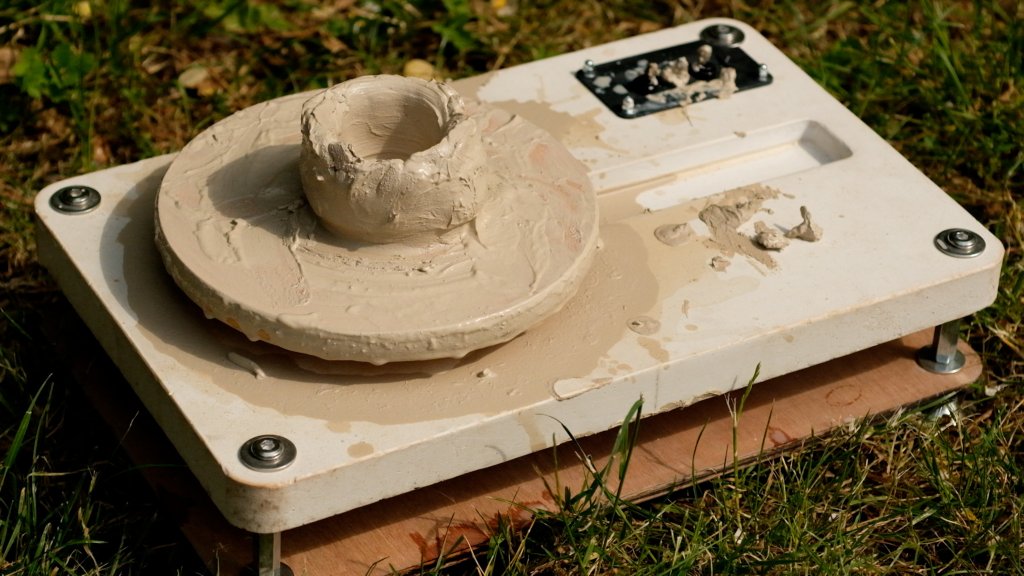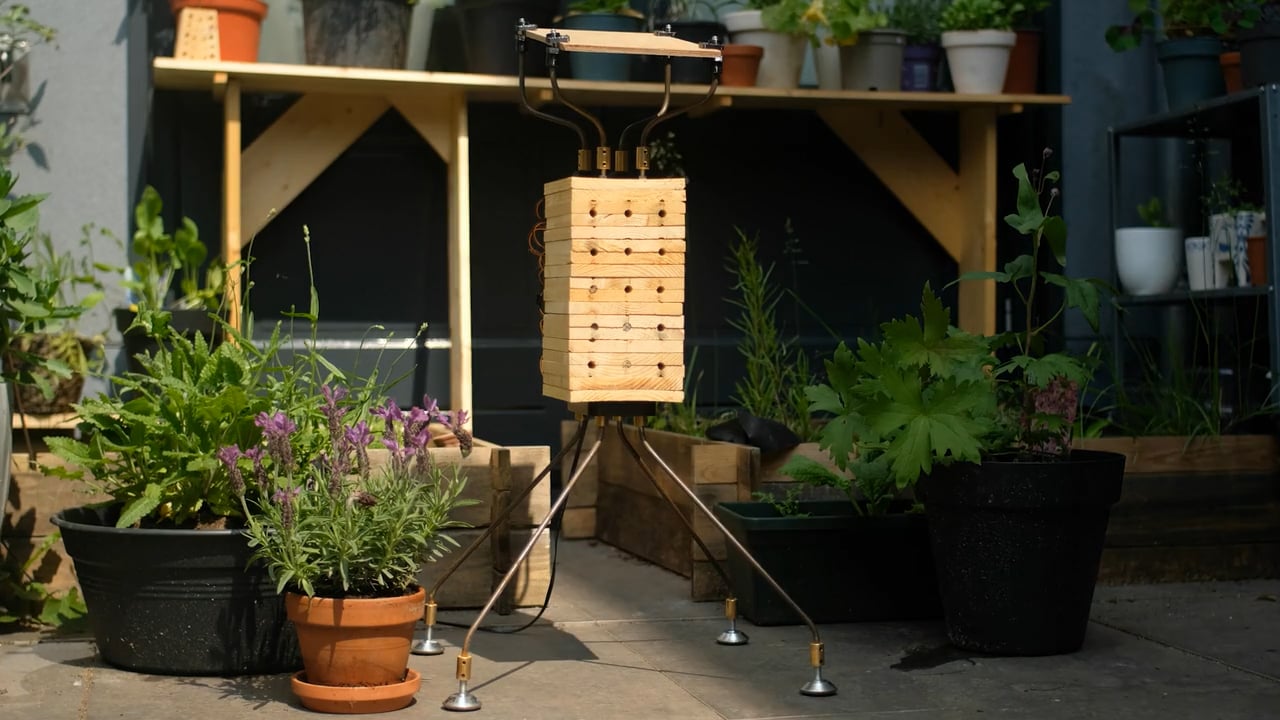Negotiating with the Garden
The project addresses the ongoing discussion in HCI and design community: temporality in more-than-human design. The project introduces a concrete example using tangible technologies in which humans and nonhumans interact to share time, space, and material.
What kind of technology helps us notice more-than-human temporalities?
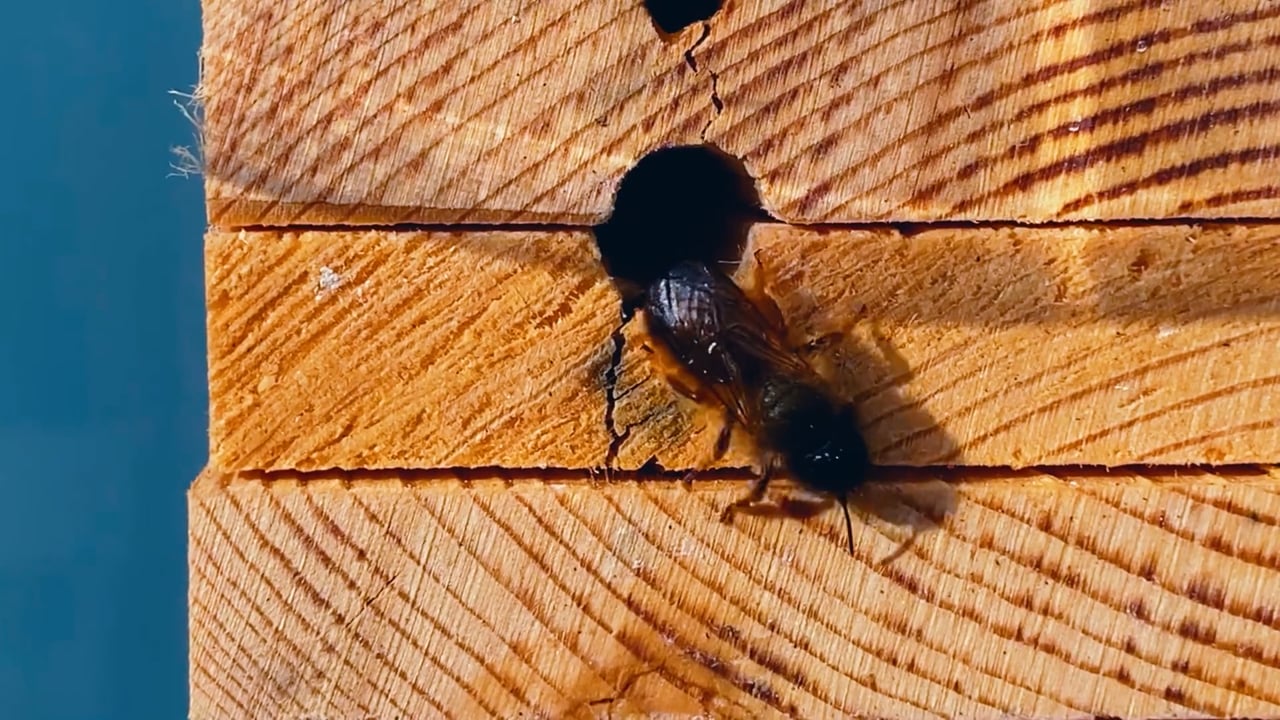
In the name of productivity, we have been rapidly exploiting nature as a resource to advance our technology. This accelerated attitude has separated us from nature. We have forgotten to attend to the time that nonhuman beings experience: germination, growth, reproduction, death, and decay. It’s time to tune into the multiplicity of more-than-human temporalities and reconnect with nature.
Although technology is often regarded as the opposite of nature, the boundary between the two is becoming blurry. Rather than going anti-technology, can we instead think of technology that helps us become more sensitive to such temporalities?
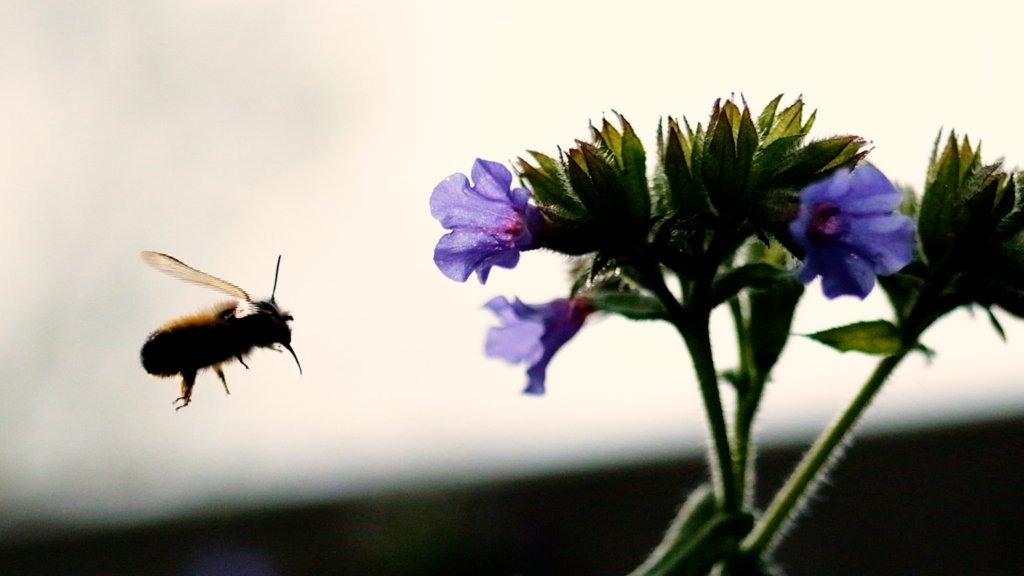
We conducted a number of research activities focusing on the designer’s garden in Utrecht, the Netherlands. The most recent featured the red mason bees (Osmia bicornis). Inspired by the designer’s experience of gardening among flying bees while trying not to disturb them, technology that facilitates the spatiotemporal negotiation between humans and the bees were developed: a connection between a beehive and a pottery wheel.
The red mason bees need clay-rich mud to build their nests. This same clay can be used to make pottery on the pottery wheel. The beehive detects the presence of the bees and send signals to regulate the rotation of the wheel. When the bees are active, the wheel will not rotate and it serves as their mud source. Humans then need to choose a time to work on their pottery.
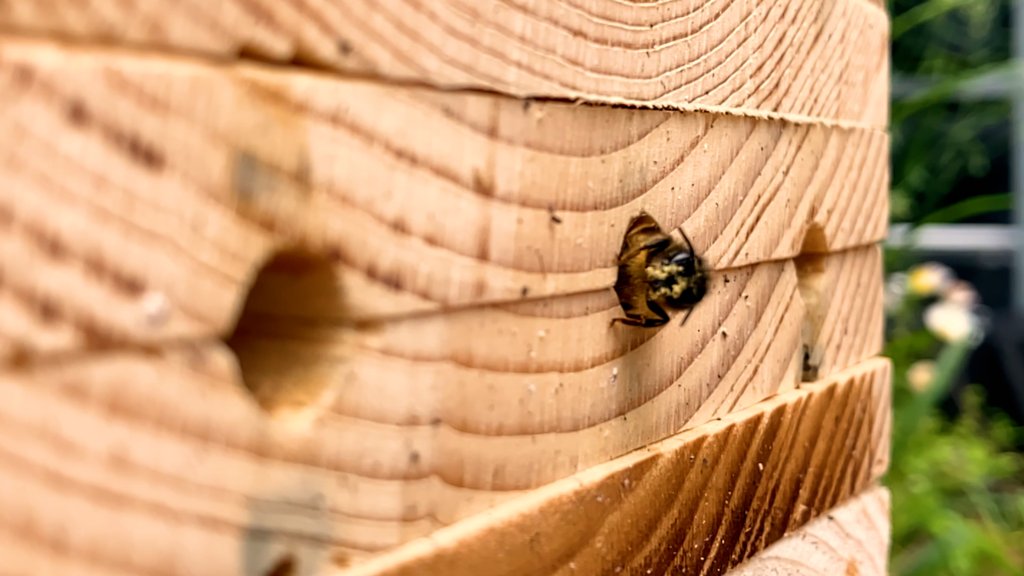
This project proposes the sharing of time, space, and material as a means to decentre humans, and it welcomes nonhumans’ takeover. This shift from human-centred to a more-than-human mindset is crucial for today’s design practices as, for example, we are facing a climate crisis as a consequence of human-centric technological development.
Involving nonhumans in the use of technology forces designers to think beyond the human perspective and become attentive to the biology of the species. This influences the iterative process on prototyping and designing of the location (the garden in this case) where the technology is used.
